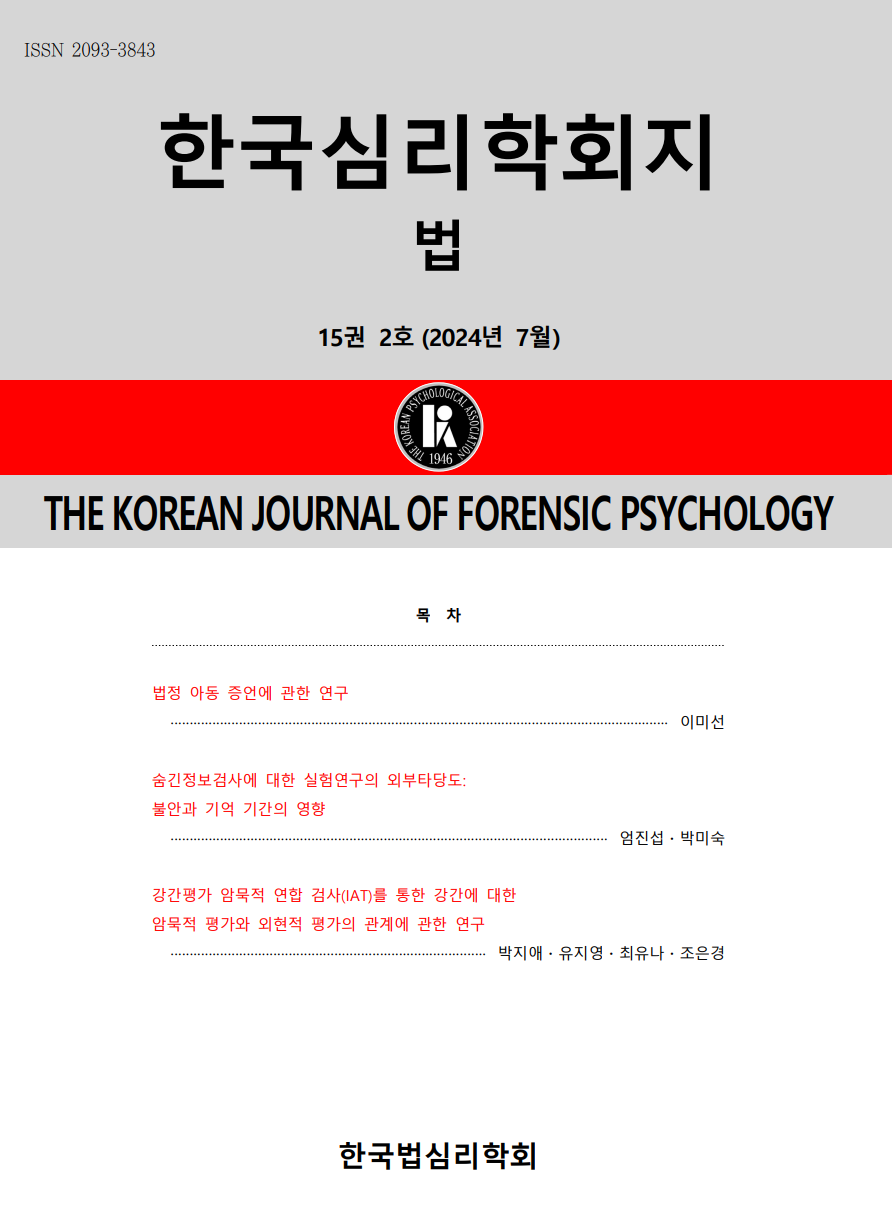open access
메뉴
open access
메뉴 ISSN : 2093-3843
ISSN : 2093-3843
As stalking rises as a serious public matter, we aimed to examine the factors influencing the judgment of stalking. We investigated if there was any difference in the judgment of stalking by stalker-victim relationships(i.e., strangers, ex-partners, and ex-colleagues), and by people’s gender and age. We also explored if internalized shame, known to be related to interpersonal problems and dating violence, affected the judgment of stalking. As a result, the offender responsibility was evaluated higher in the stalking occurred between strangers than ex-colleagues, and more severe punishment was evaluated for the stalking occurred between strangers than ex-colleagues. The victim was held less responsible for the stalking occurred between ex-partners than ex-colleagues, and for the stalking occurred between strangers than ex-partners, and the victim blame was evaluated less for the stalking occurred between strangers and ex-partners than ex-colleagues. The mediation effect of internalized shame on the relation between age and stalking judgment was significant. The less the people’s age, the higher the internalized shame, and the more likely to hold the victim responsible and to blame the victim for the stalking. The results showed that the judgment of stalking differed by stalker-victim relationships. Additionally, the mediation effect of internalized shame between age and judgment of victim responsibility and victim blame was significant.